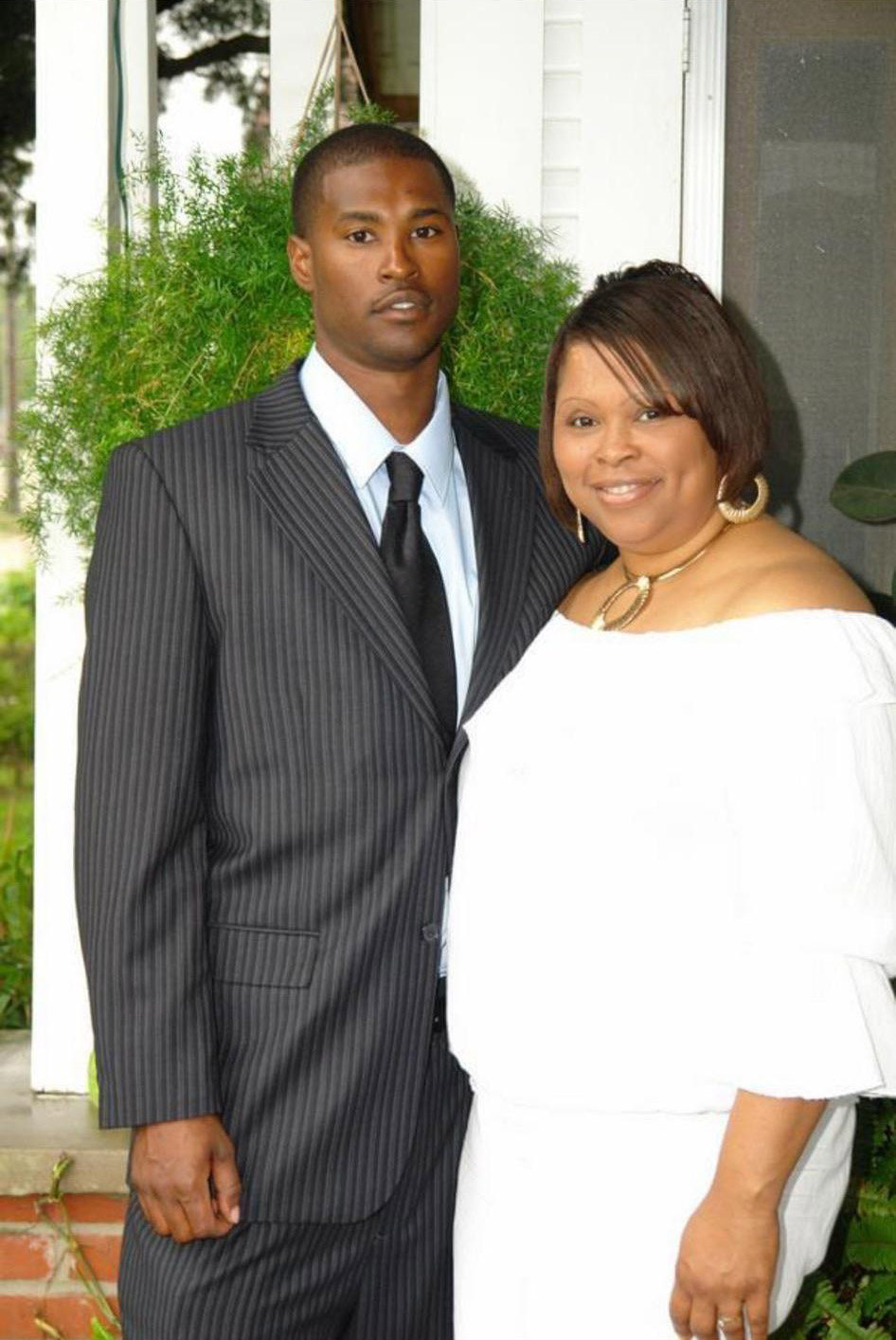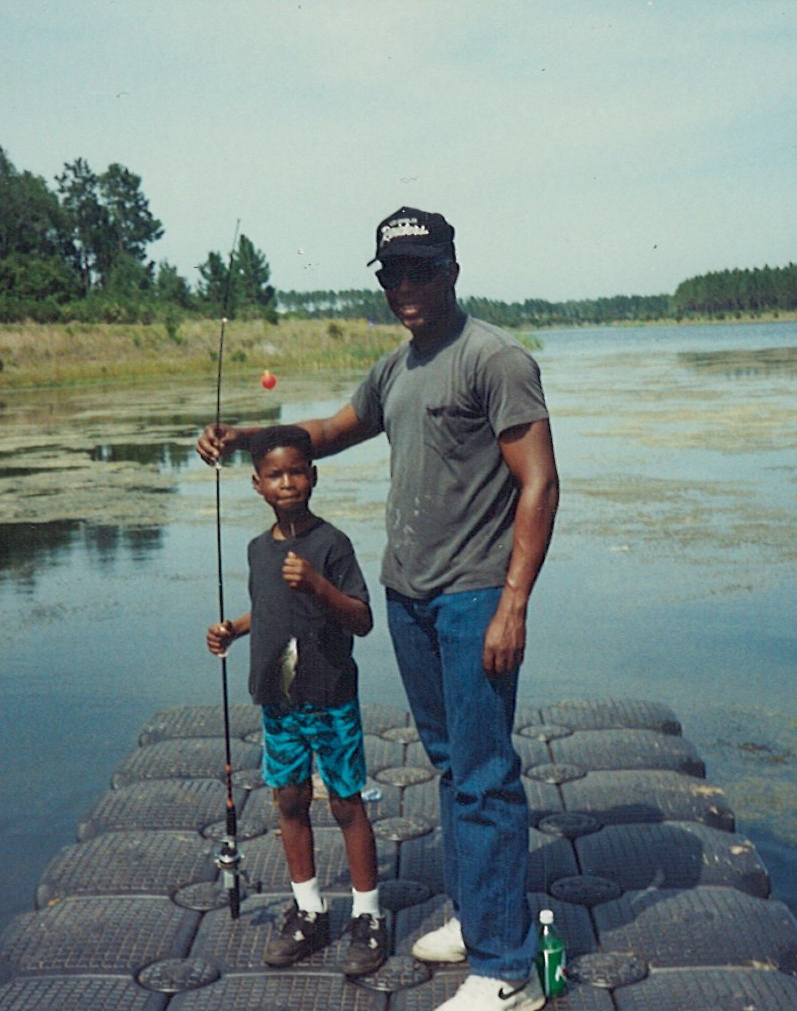Truthout is a vital news source and a living history of political struggle. If you think our work is valuable, support us with a donation of any size.
On November 18, 2020, 37-year-old Javon Kennerson was transferred to Louisiana’s Catahoula Correctional Center, a prison that until recently was run by LaSalle Corrections, a private prison corporation. Less than one month later, after a series of mental health crises, hospitalizations and prison officials’ apparent failure to supervise and monitor him, Kennerson was dead.
Across LaSalle’s constellation of prisons, several dozen people have died from delays in medical treatment or the lack of necessary medical treatment since 2014. Four of those deaths occurred at Catahoula. Over the past five years, at least 105 lawsuits have been brought against LaSalle for failing to provide medical care.
According to the U.S. Department of Justice, Louisiana has not only the highest per-capita incarceration rate, but also the highest death-in-custody rate, with 786 deaths between 2015 and 2019. The vast majority of deaths (nearly 86 percent) were related to medical illnesses; fewer than half of known deaths were from a medical condition that existed before incarceration. A 2021 report prepared for the Louisiana legislature found a number of barriers to accessing basic health care in state-run prisons, including medical co-pays, lack of annual exams and preventive care, lack of confidentiality in requesting sick call visits, and threats of malingering charges, which can result in forfeiting earned good time (thus prolonging incarceration) or loss of visits and canteen (the ability to buy food and other items from the prison’s sole store).
Over a year later, Kennerson’s mother, Jennifer Bartie, still doesn’t know why her son died. After repeated and unsuccessful efforts to obtain his medical records, she has filed suit against the prison, LaSalle Corrections, the Louisiana Department of Public Safety and Corrections (DPSC), prison officials, and the companies that insure LaSalle, the DPSC and the parish sheriff.
A Dramatic Deterioration
Kennerson had been imprisoned since 2013. Throughout his incarceration, he called his parents at least once a month. “He never talked about any type of mistreatment,” Bartie told Truthout. He had no medical or mental health concerns, and nothing in their conversations made her worry. “The only thing he complained about was the food,” she said, noting that Kennerson had always loved to eat.

That changed on November 18, 2020, when Kennerson was transferred to LaSalle’s Catahoula Correctional Center. The prison does not provide ongoing psychiatric care. If a person requires medical attention, they must wait until Wednesday, the sole day that medical providers visit the prison.
On Thursday, November 19, Kennerson stripped naked and ran out of his cell. The following day, Friday, November 20, prison staff reported that he refused to keep his clothes on and had tried running out of his cell several times. Staff also saw him painting his cell with water and defecating on his meal tray.
That Friday, prison administrators contacted the Louisiana DPSC about his condition. Three days later, they contacted DPSC again about Kennerson’s condition, stating that they worried that he would hurt himself or others. That was a Monday. Kennerson would have to wait two more days until he could be evaluated by medical or mental health staff.
On Wednesday, November 25, mental health staff evaluated and diagnosed him with acute psychosis. The treating psychiatrist recommended that Kennerson be transferred to a prison that could provide a higher level of psychiatric care. Still, he remained at Catahoula.
Five days later, on November 30, Kennerson was able to obtain roach killer, which he smoked.
From there, his physical and mental health deteriorated dramatically, requiring multiple hospitalizations. Two days later, on December 2, he was unable to walk and had to be transported in a wheelchair. His limbs were swollen and he was unable to verbally respond to questions from the doctor.
Ten minutes after he arrived at the prison clinic, the doctor deemed him medically unstable and sent him to the emergency room at Riverland Medical Center. There, medical staff diagnosed him with several severe conditions, including rhabdomyolysis, a condition in which damaged skeletal muscles break down rapidly and can be caused by injury or toxins. He also had hepatitis, a head contusion and a large laceration on his forehead. Prison staff told the hospital that the injury was caused by Kennerson running into the cell door several times.
Hospital staff ordered that Kennerson be brought to a neurologist within 24 hours. They also prescribed several prescription medications to be taken over the next 10 days. Kennerson was discharged and returned to Catahoula that same day. He remained lethargic and unable to speak. His body temperature remained low, his legs remained swollen and he needed a wheelchair to move.
On the following day, December 3, prison staff once again contacted the DPSC about transferring him. They sent medical and emergency room records, but Kennerson remained at Catahoula.
That evening, prison staff once again called an ambulance to bring Kennerson to the emergency room. There, he was intubated. Hospital staff noted that he had an altered mental state.
The next day, he was transferred to Lakeview Regional Medical Center. He died there eight days later on December 12, 2020. The coroner believed his death was attributable to smoking roach killer.
A Family Operation
Compared to private prison titans CoreCivic and GEO Group, LaSalle Corrections is a relatively small company that operates a handful of carceral facilities in Arizona, Georgia, Louisiana and Texas. Founded in 1997, LaSalle Corrections quickly expanded so that, by 2013, one in every seven Louisiana prisoners were incarcerated in a LaSalle-owned or operated facility.
LaSalle bills itself as a “family operation” based on “family values,” but the company has long been plagued by accusations of medical neglect and death in its facilities.
The National Police Accountability Project of the National Lawyers Guild estimates that 51 deaths have occurred in LaSalle prisons between 2014 and 2022. Many of those deaths are related to medical neglect, says Lauren Bonds, the project’s legal director and co-counsel on Bartie’s lawsuit. “These allegations are pretty uniform from 2015 to today,” she told Truthout. This includes inadequate supervision and a lack of access to doctors or other medical staff. “The things that contributed to Mr. Kennerson’s death are very much the standard operating practice at LaSalle all the way back to 2015.”
In April 2019, for instance, Holly Barlow-Austin was arrested for a probation violation and sent to the LaSalle-operated Bi-State Jail in East Texas. She arrived with several serious health conditions, including HIV, but according to a lawsuit filed by her husband and mother, had normal vital signs and full mobility. Jail staff repeatedly failed to administer her prescription medications and ignored her deteriorating conditions. By mid-May she was placed under medical observation; surveillance videos show her in her cell writhing in pain and calling for help. By the next month, Barlow-Austin had begun soiling herself and appeared emaciated. Despite these signs, staff allegedly failed to check on her and, when they did, ignored her calls for help and water. On June 11, two months after she entered the jail, medical staff found that her pupils no longer reacted to light and had her transferred to the hospital. Six days later, she died of sepsis, meningitis, HIV/AIDS and accelerated hypertension.
Federal auditors have also found multiple instances in which LaSalle staff did not conduct cell checks or observations of people who exhibited mental illness or suicidality. Between 2017 and 2021, three separate audits found that LaSalle prisons failed to secure dangerous instruments, such as ropes, strings, syringes and sharp objects, that incarcerated people could use for self-harm or suicide.
Since 2015, at least nine people (in addition to Kennerson) have died by suicide in LaSalle prisons. Bartie’s lawsuit charges that the prisons’ failures to supervise mentally ill and suicidal people stem from staffing shortages.
This isn’t unusual in a privatized setting, said Bianca Tylek, executive director of Worth Rises, a nonprofit that tracks companies that profit from incarceration. She notes that this occurs in private prisons as well as in government-run jails and prisons where health care has been outsourced to a private company.
These staffing shortages are particularly common in rural areas, she added. Catahoula Correctional Center is located in Harrisonburg, Louisiana, which, in 2020, had a population of 308.
Even if Kennerson had been transferred to a state-run prison, he still may not have received adequate mental health care. Louisiana’s David Wade Correctional Center (DWCC), for instance, had one part-time psychiatrist to oversee the medication and treatment plans for an average of 72 patients with mental health needs. A 2018 lawsuit also charged that DWCC staff punished people with mental illness by chaining them to wooden chairs, opening windows to expose them to extreme cold and isolating them for prolonged periods. At the Raymond Laborde Corrections Center, a psychiatrist is on-site once every two weeks, while at Dixon Correctional Institute, where 30 percent of the population is on the mental health caseload, the psychiatrist is only on-site for six hours each week.
“So many in-custody deaths are because we have an over-incarceration problem in this country and certainly in Louisiana, which has the highest incarceration rate in the entire world,” stated National Police Accountability Project Legal Director Lauren Bonds.
Louisiana, she said, “needs to end its contract with LaSalle. What caused Mr. Kennerson’s death was that he was in a facility that was so indifferent to his needs that it allowed him to smoke insecticide and engage in other types of self-harming behaviors that significantly injured him. They’ve shown that they’re incapable of improving care for people in custody.”
Citing the ongoing litigation, the Louisiana Department of Public Safety and Corrections declined to provide comment or answer questions from Truthout about care provided to Kennerson, mental health treatment in its prisons, or its contract with LaSalle.
A Family Seeks Answers
The last time Jennifer Bartie spoke with her son was one week before he was transferred to Catahoula. She recalled telling him that one of his childhood friends had died the previous month and that Kennerson offered condolences to the man’s mother. As always, he ended their call by saying, “Love you, mama.”

On December 8, medical staff at the Lakeview Medical Center contacted Bartie’s mother about Kennerson. By then, he had been on life support for four days. Bartie’s mother called Bartie, who left work and, with her husband, three children and 4-year-old grandson, prepared to drive the five hours from their northern Louisiana home to Lakeview. They arrived that evening and, limited by COVID protocols to two visitors at a time, took turns staying with him for the next eight days. On December 12, Kennerson was taken off life support. Hospital staff allowed the entire family (except for the 4-year-old, whom a nurse watched in the lobby) to be with him during his last hours.
As a Black mother, Bartie has always worried about her children’s safety from law enforcement. Since Kennerson’s death, she says, those fears have magnified. “I’m a wreck when they walk out that door.” Her youngest child is now a high school senior. He is six-foot-two and, Bartie says, she worries every time he walks out the door that he may be brutalized or killed by police. “He’s just a big ol’ gentle giant, he wouldn’t hurt a fly, but are they gonna know that?” she asked.

Kennerson’s family still doesn’t understand what led to his death. After repeated requests, Bartie received incomplete records from Catahoula, in which nothing was documented between November 25 and December 2. She also received two incident reports, one of which was incomplete, from the previous prison, the Beauregard Parish Southwestern Transitional Program. The reports stated that, on November 17, Kennerson was yelling, screaming and hitting the bars of his cell, and that guards had sprayed him twice with a chemical agent. “It didn’t say anything about what he was yelling and screaming,” Bartie stated.
Bartie’s husband, Darrell, also has questions. He told Truthout that Kennerson, at six-foot-four and 280 pounds, had always been a “tall, solid kid.” At the hospital, he recalled, they could see his collarbone and, if they pulled up his shirt, could count his ribs. “It takes time to get that malnourished,” he said.
He, too, wants to know what happened. After Kennerson’s death, when he and his wife drove to Catahoula to pick up their son’s belongings, he asked to speak with the warden. The warden declined to meet with them. Instead, they were given three garbage bags of their son’s belongings and no answers. “I want to see documentation, I want to see video tape and I want everyone who’s involved to be held accountable,” Darrell told Truthout.
So far, those answers haven’t been forthcoming, prompting Bartie to reach out to attorneys, including the National Police Accountability Project, and to file suit to obtain them.
“It’s year two since my child has passed and I don’t know what’s happened,” Bartie said. “He made some bad decisions, but he didn’t deserve to die in this manner. I wouldn’t wish this on anybody, not even those I feel are responsible for his death.”
Holding Trump accountable for his illegal war on Iran
The devastating American and Israeli attacks have killed hundreds of Iranians, and the death toll continues to rise.
As independent media, what we do next matters a lot. It’s up to us to report the truth, demand accountability, and reckon with the consequences of U.S. militarism at this cataclysmic historical moment.
Trump may be an authoritarian, but he is not entirely invulnerable, nor are the elected officials who have given him pass after pass. We cannot let him believe for a second longer that he can get away with something this wildly illegal or recklessly dangerous without accountability.
We ask for your support as we carry out our media resistance to unchecked militarism. Please make a tax-deductible one-time or monthly donation to Truthout.
